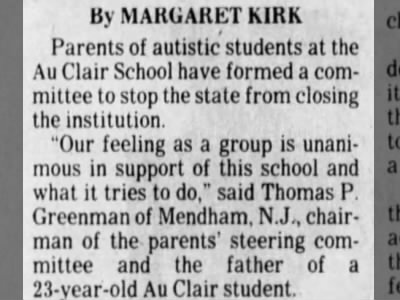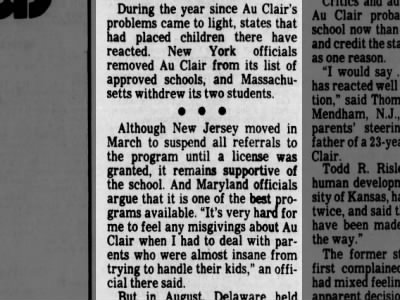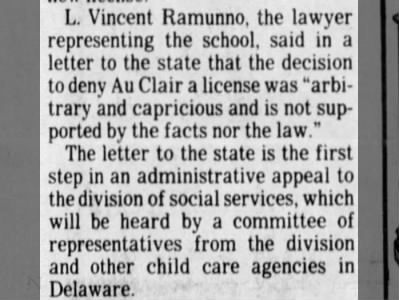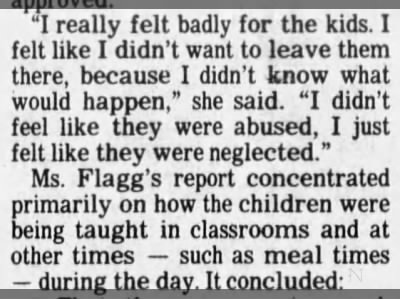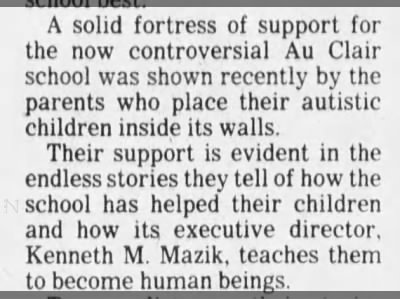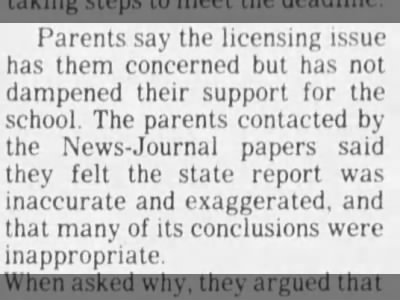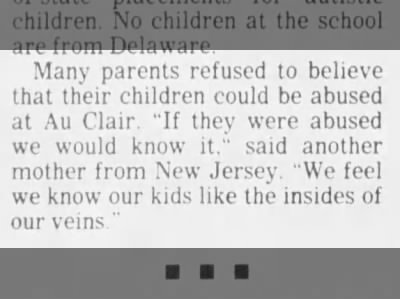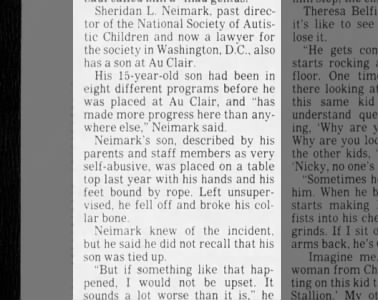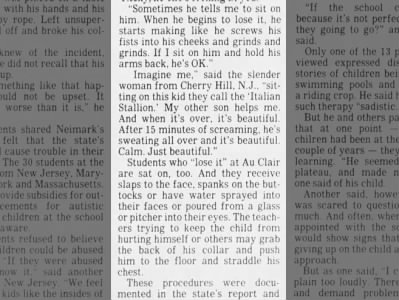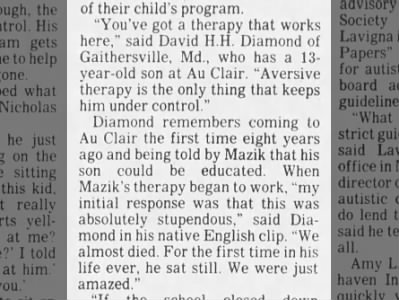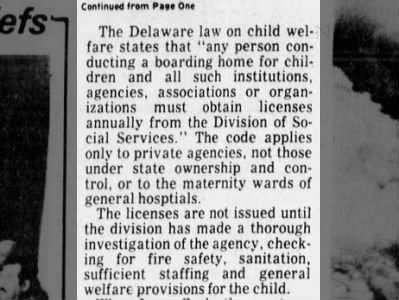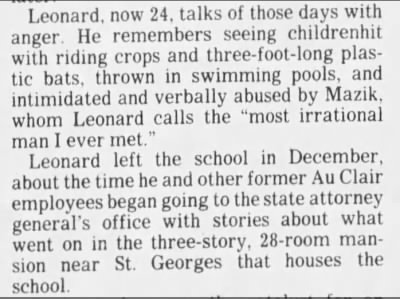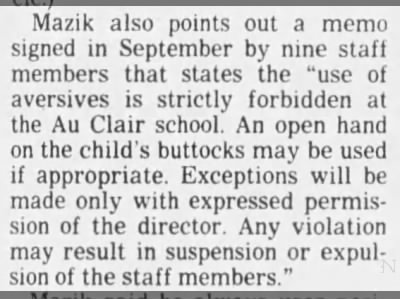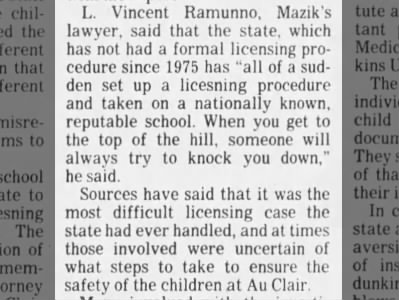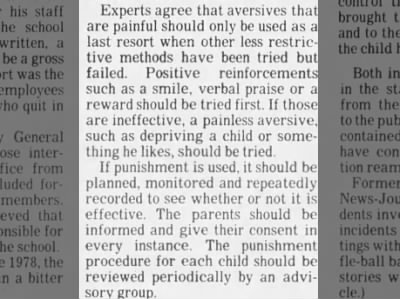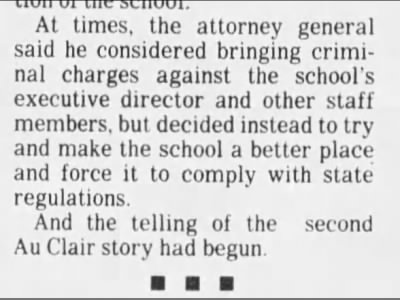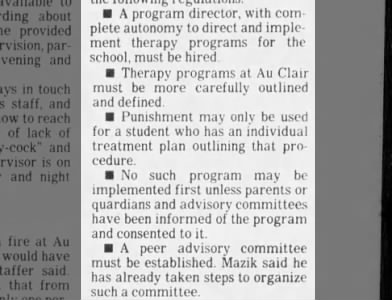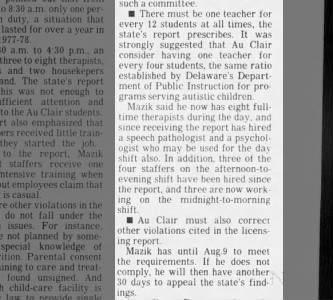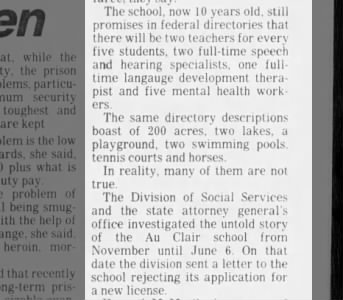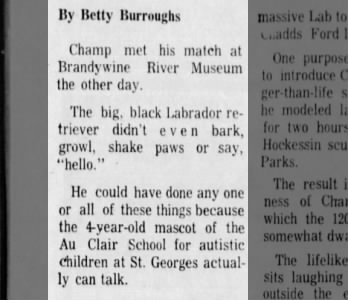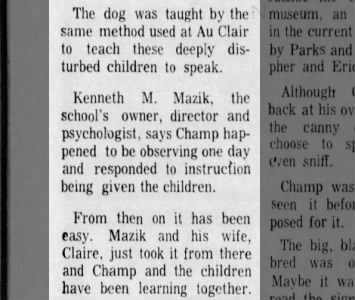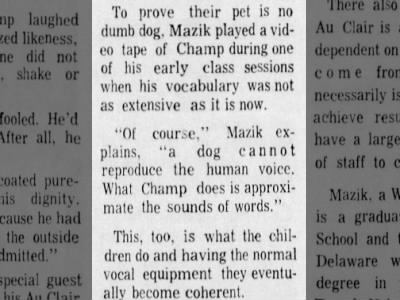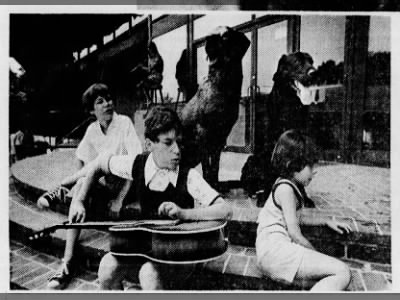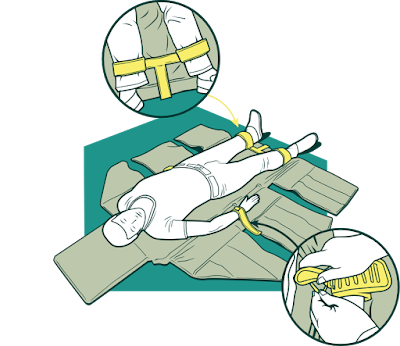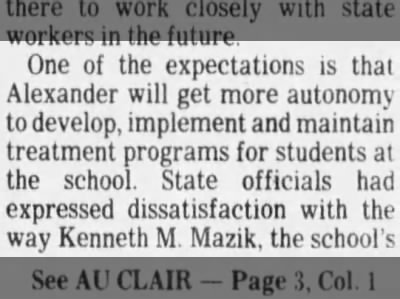 The Dodgers may have ripped the Phillies and Carter may have promising a new tax package, Delaware's big headline on August 27, 1980 was Au Clair's License Restored on Trial Basis by Charles S. Farrell.
The Dodgers may have ripped the Phillies and Carter may have promising a new tax package, Delaware's big headline on August 27, 1980 was Au Clair's License Restored on Trial Basis by Charles S. Farrell.After operating the non-licensed facility for more than a year, Mazik had won a six month Provisional License. The state attributed the concession to Mazik's hiring of an independent Program Manager, Dean Alexander.
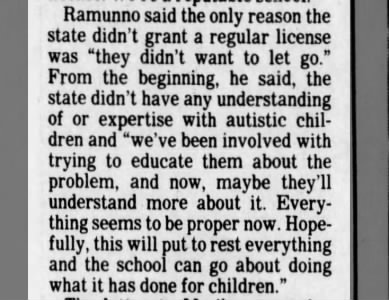 Yet, Mazik still wasn't satisfied. Though he spoke only through his attorney and the parents of his students, his displeasure was evident. It was a demeanor both staff and state department members knew too well.
Yet, Mazik still wasn't satisfied. Though he spoke only through his attorney and the parents of his students, his displeasure was evident. It was a demeanor both staff and state department members knew too well. To Rammuno's great dismay, he may have spoken much too soon. On December 6th, 1980, the Margaret Kirk reported that Mazik's new program manager, Dean Alexander was no longer with company. He had lasted less than six months. Au Clair espoused that he left Delaware due to a critical illness of a family member in California.
Mazik quickly replaced him with Leonard I. Sains, a special education-alist out of New Jersey who had made a career out "job hopping" through the special needs industry. He landed in Delaware, fresh from his executive directorship at The Early Childhood Learning Center of New Jersey. Sains did provide value to Au Clair, he had accumulated tremendous education and experience working with the severely challenged. He wasn't just a warm body. When Mazik went to the state in 1981 to request an extension on his provisional license, Sains qualifications scored Au Clair another opportunity to continue to operate.
By 1982, Au Clair was operating on its second conditional license and holding their breath. One day before the second license expired, May 15, 1982, it was announced that the school would receive one more conditional license - for 30 days. On June 16, 1982, Au Clair received yet another provisional license - for five days.
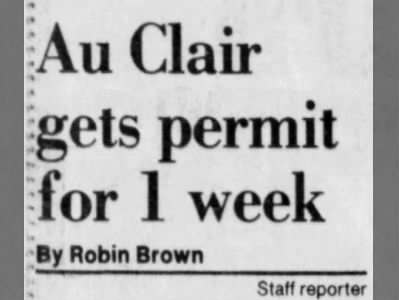
Mazik was unavailable for comment. He was in Florida.

